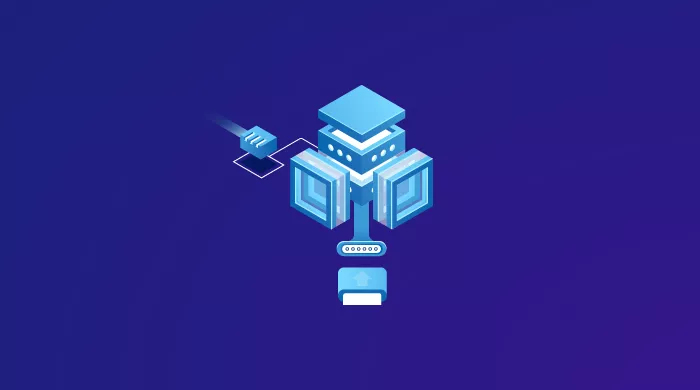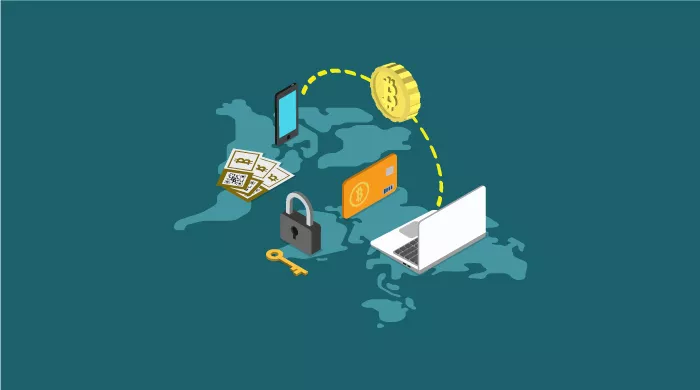Digitalization plays an imperative role in building a more cohesive and developed world. It has opened doors to numerous business opportunities and massively improved people's lives by making them easier, luxurious, and more connected. The 21st century has experienced the best of the revolution brought in by digitalization, be it the rise in IoT technology adoption, 5G technology, or the entry of artificial intelligence(AI) into human lives.
Blockchain is a groundbreaking and revolutionary technology that has brought numerous industry opportunities and contributes to a secure digital economy. Initially developed as a support structure for the most popular and first cryptocurrency, Bitcoin, in 2008 by Satoshi Nakamoto, Blockchain technology has come a long way to becoming much more than just an architecture for a digital currency. It has been a hot topic of discussion in recent years due to its rapid adoption and the numerous benefits it bolsters. This post aims to shed some light on blockchain technology and why it’s drawing heavy investments from top industries. Before moving forward to the main topic of discussion, let's get a brief overview of what blockchain is and why it is considered a groundbreaking technology.
A Brief Review of Blockchain Technology
Blockchain is a database that records any information, be it transaction details, directory of stakeholders, personal info of employees working in a particular company, or details of bank account holders. Any data that can be considered sensitive but needs to be assessed by several people can be stored in a blockchain. Blockchain is mainly described as a distributed and decentralized ledger that stores information as blocks. Every block in the ledger is chained to the previous block; hence, all the blocks are permanently linked to the preceding ones. Once the capacity of a block to store information is full, upcoming info is stored in a new block, which is again chained to the preceding one.
The most important feature of the blockchain is that any member can access the data stored as digital blocks. Once the data is stored in the blocks, it cannot be altered, making the blockchain a reliable and secure database. All the participants can view any changes being carried out in the chain. Hence, the system's transparency and visibility are greatly enhanced. Blockchain is thus highly secure for saving sensitive transaction details and classified information that a particular group should only access.
Blockchain Technology Market Insight
Blockchain technology is groundbreaking, and its market value is the ultimate proof of its growth. According to Statista, the spending on blockchain solutions globally is anticipated to reach 6.6 billion dollars by the end of 2021; meanwhile, the numbers are expected to reach 19 billion dollars by 2024. Another survey found that in 2020, the banking industry with a market share of 30% stood as the sector with the most significant share in global blockchain market revenue, followed by process manufacturing with a share of 11.4%. Let's check out more about industries benefiting the most from blockchain technology.

Source: Statista
Top Industries Revolutionized by Blockchain Technology
The promising benefits of blockchain technology, including security, transparency, and building better trust in systems, have led major sectors to invest in blockchain solutions. Let's look at some major industries that rely on blockchain technology to perform their most critical tasks and get reliable results.
Banking
The banking and finance sector has emerged as the most significant player in the blockchain market, as it reported 30% of the accountability in the global net blockchain market revenue. Many of us already know about cryptocurrencies such as Bitcoin, Dogecoin, Ethereum, etc., that have completely disrupted the finance industry. Cryptocurrency is a kind of digital currency based on blockchain technology. It is a distributed and decentralized network that spans multiple computers and acts as a form of money that can be used to render services and buy goods. It differs from traditional currencies as they do not exist physically and are not issued or circulated by any government authority or third party. Cryptocurrencies are secured using cryptography, which is considered the tightest measure of security.

Cryptocurrencies based on blockchain technology are immune to manipulation as it is nearly impossible to alter the data stored in blocks because they are secured using cryptographic hashing. Also, details of every transaction performed are stored in the blockchain, which can be viewed by each participant, thus giving complete transparency. Today, major companies like Starbucks, Microsoft, Virgin Galactic, Shopify, Tesla, and many more accept cryptocurrencies such as Bitcoin as a valid mode of payment. Keeping cryptocurrencies aside, blockchain technology can also be used to record transactions, employee and customer details, etc., to boost transparency and security.
Cybersecurity
Like every coin has two sides, the growing reliance on the internet and digital world has undoubtedly improved the quality of human lives, but it has its consequences too. It has become very easy today to get anybody's personal information through social media and other platforms such as online banking apps and payment portals. Vulnerabilities in these platforms seem to have opened Pandora's box for cyber theft, fraudsters, and people with malicious intentions. Based on the annual report for 2020 of the FBI's Internet Crime Complaint Centre, the center received 791,790 complaints about a range of Internet crimes with reported losses of around $4.2 billion, up from 300,000 complaints received in 2019.
In recent years, blockchain technology has evolved as a potential tool for protecting systems and the public from internet crimes in the cybersecurity sector. Platforms such as ecommerce, travel booking, social media, etc., use blockchain-based storage solutions to record users' sensitive personal information. As we know, only parties with access to the ID for a particular blockchain can access the stored data; hence, the possibility of an outsider accessing the information is quite rare. In certain circumstances, even if an infiltrator gets access to the system, it would be nearly impossible for him to access every user's information. Hence, the possibility of data theft and a threat to the security of millions of users is reduced considerably. This way, businesses using blockchain solutions can control who gets access to user information more conveniently.
Logistics and Supply Chain
Supply chain management has always been a complex task, and poor handling of items or even minor negligence can result in a loss to the business and customers. The management becomes more complicated when the supply chain deals with precious metals and perishable products. Supply chain management is often compromised because of incidents like the mishandling of products by the logistics department, vendor fraud, i.e., the vendor sends fewer quantities than ordered or deploys degrading materials, theft, etc. Organizations are turning towards effective blockchain solutions to stop such occurrences and mitigate potential losses.
A blockchain solution is seemingly the most effective remedy to all supply chain problems. Blockchains are being used to record supply chain data such as the quantity of items, price, date of dispatch, the shelf life of the article, certification, dispatch location, destination, number of intermediate stops, and other relevant information. Access to this blockchain must be provided to the personnel directly involved in the supply chain to improve transparency and keep everyone on the same page. Usually, RFID tags are placed on every item in the supply chain, which contains all the details about the object, including date of manufacturing, expiry date, batch number, etc. These tags have unique IDs that can be saved on the blockchain and tracked to improve the supply chain's traceability and ensure that every item reaches its destination at the optimal time and quality. As we know, data stored in a blockchain cannot be altered; hence all the essential data regarding the supply chain are safe and cannot be tampered, thus significantly reducing the possibility of counterfeit and fraud.
Non-Profit Organizations
Non-profit organizations always come under scrutiny by most potential donors due to a lack of transparency and control over who gets financial help from the organization and how. Lack of trust in NGOs' administration and functioning methods due to recent fraud and money laundering cases has led organizations to use blockchain technology to build trust amongst the public by providing more transparency. NGOs can use blockchain solutions to store various kinds of data, ranging from donor info and the amount donated to the details of the beneficiary who received the help from the organization. All Non-profit members, including donors and beneficiaries, can be granted access to this blockchain solution. This way, NGOs can check and ensure that the amount claimed by the donor for donation matches the amount received; also, donors can check what amount and to whom it has been granted. This way, the functioning of an NGO becomes more transparent and thus trustworthy.
To Conclude
Blockchain, along with AI, IoT, AR & VR, is a technology that has completely transformed the 21st century. Founded in 2008 as a structure for Bitcoin, in 2014, blockchain technology found its use beyond a currency, as a means to store records securely and build better transparency. Today, almost every primary industry uses blockchain technology to create systems that bolster security and transparency. In this post, we discussed some significant sectors in which blockchain technology has benefited and transformed. The cases of adoption of blockchain technology are not just limited to the ones mentioned above; more and more organizations are moving towards adopting blockchain solutions as the popularity of the technology keeps soaring.








